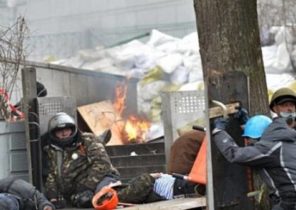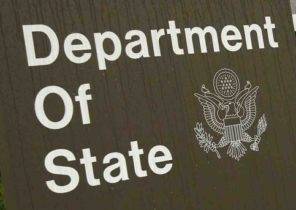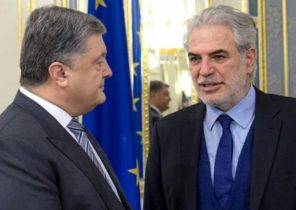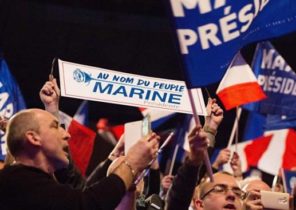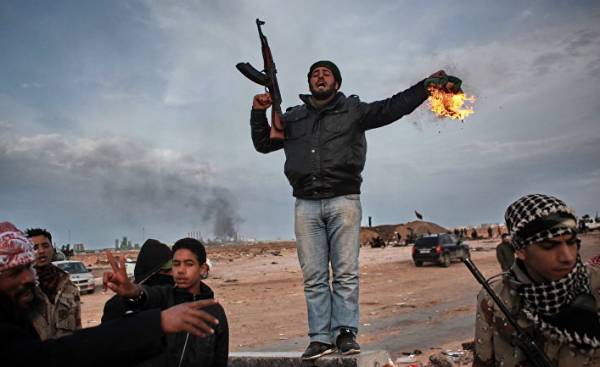
After the overthrow of the Gaddafi regime during the revolution in February 2011, which was preceded by several months of economic prosperity and social stability, the government entered into an Alliance with counter-revolutionary forces to confront the emerging opposition. The country was split geographically: while the Western part is considered a stronghold of Islamism in the East and was captured by major General retired Khalifa the Haftarot.
The Libyans have paid with blood in the struggle for the fate of Gaddafi, but the joy on the occasion of the victory over the regime of tyranny was short-lived revolution ended, and the opposing forces remained.
For decades, the Libyan state was a kind of incarnation of the personality of Gaddafi, which prevented the emergence of these institutions. As a consequence, with the death of Gaddafi on the site of the former institutions of the vacuum, which also contributed to the policy of regional and international players, as it seems aimed at creating conditions for intervention in the internal Affairs of Libya and the imposition of her specific agenda.
A comprehensive crisis
The Libyan writer and journalist, Benussi, Basicly believes that what we are witnessing in Libya today, is inextricably linked to what happened during the 40 years of rule of Muammar Gaddafi. In particular, people-especially those who makes decisions, was largely influenced by the negative phenomena of the previous epoch, such as the decline of culture and education, the radical principles of government, fundamental changes in society and discrimination of opponents.
He added that regional and international players would not have the capacity to intervene in the Affairs of Libya, if that didn’t contribute to the situation in the country, namely numerous regional and tribal conflicts, conflicts between Islamists and liberals within the revolutionary camp, and a struggle between the forces of revolution and counter-revolution.
Basiri noted that, despite the fact that Haftar fought against counter-revolutionary forces, he managed to unite the supporters of the former regime, tribal representatives, former owners, foreign fighters and a small number of military in the so-called “National army” of opposing armed groups and terrorists.
The revolutionary struggle
As stated by a member of the Supreme state Council Nizar Cavan, what happened in Libya is not new. Throughout history, every revolution was followed by counterrevolution. He noted that when there is a revolution, it has a clear goal — to overthrow the regime of tyranny, but after reaching this goal, it becomes obvious that wise political project no.
In addition, the intervention of regional players, political and tribal divisions, the proliferation of weapons has contributed to the continuation of the armed struggle between the forces of revolution and counter-revolution and the emergence of the “Islamic state”, which could benefit from the vacuum in the field of security.
At the same time, Kavan stressed that, despite all the challenges and difficulties the Libyan people still support the revolution and the solution to the problem is to achieve the consent of all parties to the Libyan conflict in order to build a modern developed state.
Russia at the features
Since Russia announced its intentions in relation to the events of the “Arab spring”, between it and the West began to struggle, full of both expected and completely unexpected twists, and it seems that Libya has become one of the arenas of this struggle.
In Libya, this struggle has reached a new level. Especially after the appearance of Russian warships in the Libyan territorial waters and on the background of Moscow’s intentions to create in this country a military base, not to mention the location of the Italy of their military units in Tripoli, purportedly to protect the Italian Embassy, and American, British and French presence in Libya, according to some sources.
Rome did not hide their discontent in connection with reports by the Libyan media about signing a major-General in retirement Khalifa the Haftarot of the agreement with Moscow on the implementation of the Treaty on arms transfers. This agreement was signed by the Muammar Gaddafi regime and Russia in 2008 in exchange for allowing Russian Navy ships to use the port in Benghazi (a thousand kilometers East of Tripoli).
Commenting on the Russian steps in this direction, the Minister of foreign Affairs of Italy Angelino Alfano said that “the potential agreement between the Haftarot and Russia, and Russian successes in Libya, after Syria, forcing us to greater efforts to play a leading role in the Libyan scene, even through dialogue with the Haftarot”.
In connection with the emergence of Russian aircraft carrier in the Eastern territorial waters of Libya, the interim government in El-Beida (in the East) that supports the Haftarot, has criticized the presence of the Italian warships off the West coast of Libya. The interim government also announced the location of the Italian units in Tripoli and that more than a thousand American soldiers secretly crossed the Libyan border and are based in one of the suburbs of the capital.
Also according to the Libyan media in the province of El-Dzhufra (center) are Italian military units, which appeared there after the plane of the Haftarot fired at the airbase, controlled by “Brigades of Misrata”.
The Actions Of The West
Citing a Libyan military source and media reports reported that the UK despite the UN ban on arms exports to Libya in the long run supports the establishment of an air defense system in Misrata to protect the “Misrata Brigades” and the training of pilots and technicians, the supply of combat aircraft, missile defence systems and radars.
As for the United States of America, their air forces are directly involved in the process of liberation of Sirte from the “Islamic state” (banned in Russia — approx. ed.). In addition to this, American and British special forces are present in the area between Misurata and Sirte, which became apparent during collisions with cells of the “Islamic state” in may 2016, namely during the operation called “al-Bunyan al-Marsus”, conducted under the control of the Government of national unity.
If Washington, London and Rome to a significant extent coordinated their operations with the Government of national unity and “Brigades of Misrata” on the ground, French special forces participated in the military operations of the Haftarot in Benghazi. This fact was confirmed by the fall of the French helicopter West of Tripoli in clashes with the brigades defending Benghazi. Also often reported the presence of French detachments in the South-West of Libya.
On Board the Russian aircraft carrier “Admiral Kuznetsov” in the port of Tobruk, the Haftarot met with the chief of the General staff of the Russian Armed forces Valery Gerasimov, and also held talks with Russian defense Minister Sergei Shoigu via video — all of this after calls for Moscow to supply him with weapons.
The deal on the supply of arms
According to the Director of the Center for the study of the Middle East in Jordan Jawad al-Hamda, “Russia does not comply with international embargo on arms supplies to parties to the conflict in Libya.” In interview to Agency “Anatoly” he said that does not rule out that Moscow will comply with the terms of the agreement signed with the Gaddafi regime in 2008, which was to enter into force in 2010.
Among his points, you can allocate the permission for the establishment of a Russian naval base in Benghazi (southern Mediterranean) like the Russian base in the Syrian Tartus (Eastern Mediterranean). According to Arab diplomatic sources, the agreement on the supply of arms, to which is committed the Haftarot, is enclosed in the amount of $ 1.8 billion. The money will go to buy around 20 fighter planes, air defense systems C-300 and T-90 tanks and upgrades 140 T-72 tanks.
The presence of Russian naval or air bases in Eastern Libya, as repeatedly stated, means that Europe is under threat. According to Jordanian experts, Europe is concerned about any promotion of Russia in the East of Libya. Given its economic and trade relations with the Libyan side, the question is for Europe key.
In the oil and gas sector of Libya, a large part of the investment controls the Italian company “Eni”. She also owns a number of oil and gas fields, including “Abu Tifl” (50% is Eni), “al-Storm” (50%), “al-Fil” (33,3%), “al-Wafa” (50%).
Italy fears that Russia’s presence in Libya will affect its economic influence in the former colony, especially when you consider that Russia has lost investments worth ten billion dollars to overthrow Gaddafi in 2011.
A Jordanian expert believes that the establishment of a Russian naval base in Libya allows Russia to expand military presence close to Europe and American bases on the Italian island of Sicily, is strategically unacceptable to Washington.
Al-Hamd said that the current silence of the United States before the Russian expansion into Libya can be designed to engage the “Russian bear” deeper into the “swamp” of international conflicts in the middle East, but it is also possible that it expresses the confusion of the West in connection with the increasing influence of Russia in the fight against terrorism.
